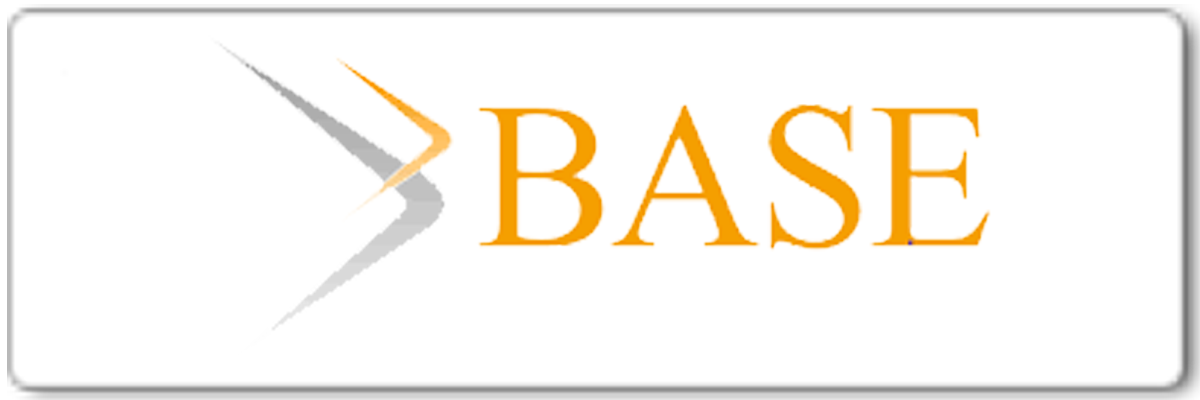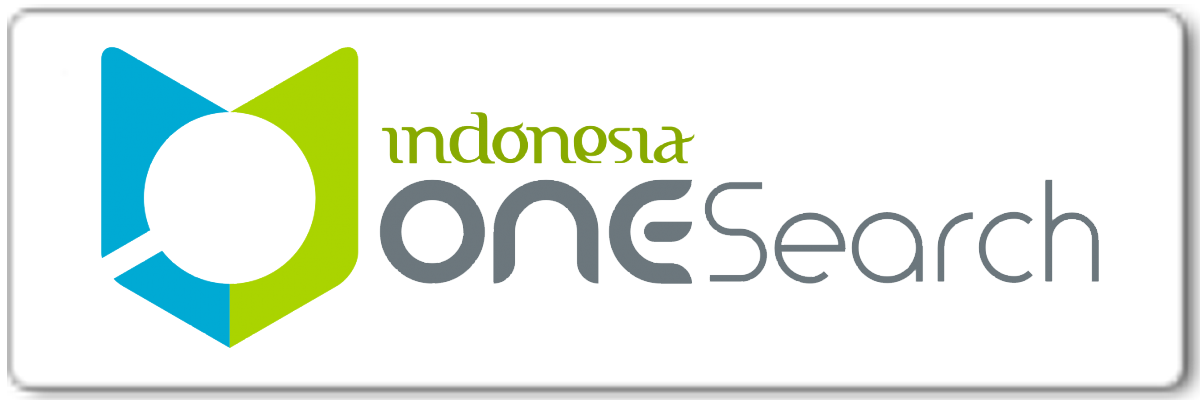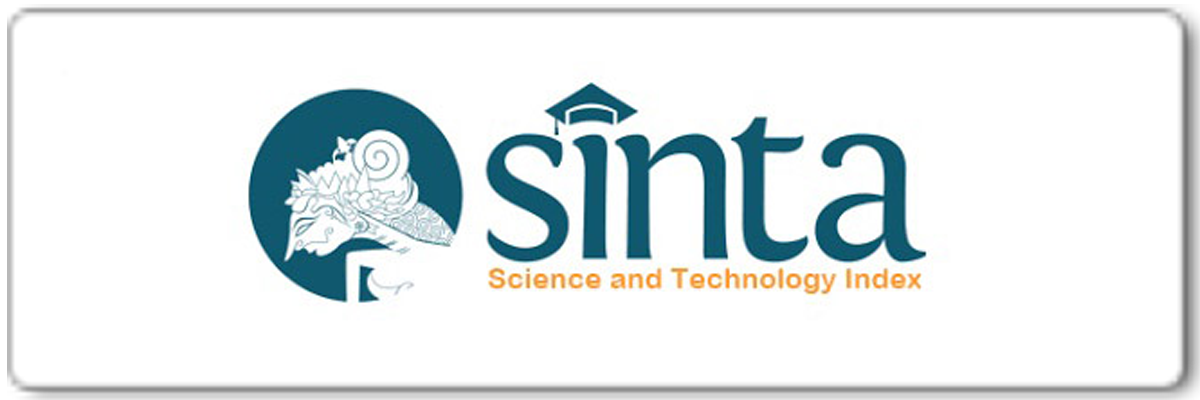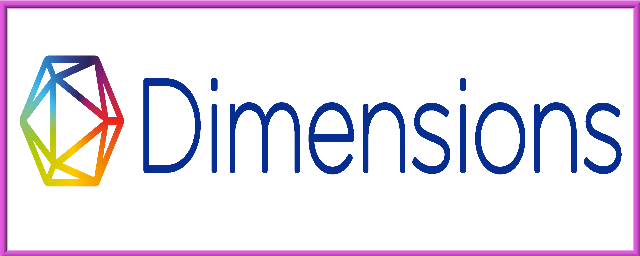The Effect of Using Self-regulated Learning Strategy on Self-Efficacy and Academic Writing Performance of College Students in Indonesia
Abstract
This study examined the correlation between self-efficacy and English academic writing performance among college students in Indonesia and assessed the effect of SRL strategy on EFL students' self-efficacy. The descriptive and correlation statistics were used to analyze the data. In this study, students were classified into three categories (high, moderate, and low) based on their rate of SRL in order to examine the relationships between SRL strategy usage, self-efficacy, and academic writing performance. The results indicated that overall SRL strategy and self-efficacy in academic writing were moderate. Students who were more frequently exposed to SRL strategies showed higher self-efficacy in academic English writing. A broader set of student characteristics could be useful in future research.
Keywords
Full Text:
PDFReferences
Bai, B. (2014). Enhancing in-service teachers’ professional learning through a school-based professional development programme in Hong Kong. Journal of Education for Teaching, 40(4), 434–436. https://doi.org/10.1080/02607476.2014.929380
Bai, B. (2015). The effects of strategy-based writing instruction in Singapore primary schools. System, 53, 96–106. https://doi.org/10.1016/j.system.2015.05.009
Bai, B. (2018). Understanding primary school students’ use of self-regulated writing strategies through think-aloud protocols. System, 78, 15–26. https://doi.org/10.1016/j.system.2018.07.003
Bai, R., Hu, G., Yongqi, P., Source, G., Peter, •, & Gu, Y. (2014). The Relationship Between Use of Writing Strategies and English Proficiency in Singapore Primary Schools. The Asia-Pacific Education Researcher, 23(3), 355–365. https://doi.org/10.1007/s40299-013-0110-0
Bandura,Albert. (1999). Social Cognitive Theory: An Agentic Perspective. Asian Journal of Social Psychology, 2(1), 1–26. http://search.ebscohost.com/login.aspx?direct=true&db=aph&%2338;AN=4369846 &%2338;site=ehost-live
Bandura, A. (1977). Social learning: Theory. Englewood Cliffs. https://doi.org/10.1016/B978- 0-12-813251-7.00057-2
Bandura, A. (2000). Exercise of human agency through collective efficacy. Current Directions in Psychological Science, 9(3), 75–78. https://doi.org/10.1111/1467- 8721.00064
Bandura, A. (2012). On the functional properties of perceived self-efficacy revisited. In Journal of Management (Vol. 38, Issue 1, pp. 9–44). SAGE PublicationsSage CA: Los Angeles, CA. https://doi.org/10.1177/0149206311410606
Benight, C. C., & Bandura, A. (2004). Social cognitive theory of posttraumatic recovery: The role of perceived self-efficacy. Behaviour Research and Therapy, 42(10), 1129–1148. https://doi.org/10.1016/j.brat.2003.08.008
Boekaerts, M., & Cascallar, E. (2006). How far have we moved toward the integration of theory and practice in self-regulation? Educational Psychology Review, 18(3), 199–210. https://doi.org/10.1007/s10648-006-9013-4
Bouffard- Bouchard, T., Parent, S., & Larivee, S. (1991). Influence of Self-Efficacy on Self- regulation and Peformance among Junior and Senior High-School Age Students. In International Journal of Behavior Development (Vol. 14, Issue 2, pp. 153–164).
Bruning, R., Dempsey, M., Kauffman, D. F., McKim, C., & Zumbrunn, S. (2013). Examining dimensions of self-efficacy for writing. Journal of Educational Psychology, 105(1), 25– 38. https://doi.org/10.1037/a0029692
Chien, S.-C. (2012). Asia Pacific Journal of Education Students’ use of writing strategies and their English writing achievements in Taiwan. Asia Pacific Journal of Education, 32(1), 93–112. https://doi.org/10.1080/02188791.2012.655240
Cohen, A. D. (2009). Communicating Grammatically: Constructing a Learner Strategies Website for Spanish. Learning, 1–13. http://www.carla.umn.edu/speechacts/japanese/introtospeechacts/
Graham, Steve, Harris, K. R., MacArthur, C., & Santangelo, T. (2017). Self-Regulation and Writing. Handbook of Self-Regulation of Learning and Performance, 138–152. https://doi.org/10.4324/9781315697048-9
Graham, Steve, Mckeown, D., Kiuhara, S., & Harris, K. R. (2012). A Meta-Analysis of Writing Instruction for Students in the Elementary Grades. Journal of Educational Psychology. https://doi.org/10.1037/a0029185.supp
Graham, Suzanne. (2006). A study of students’ metacognitive beliefs about foreign language study and their impact on learning. Foreign Language Annals, 39(2), 296–309. https://doi.org/10.1111/j.1944-9720.2006.tb02267.x
Hackett, G., & Betz, N. E. (1989). An Exploration of the Mathematics Self- Efficacy/Mathematics Performance Correspondence. Journal for Research in Mathematics Education, 20(3), 261–273. https://doi.org/10.5951/JRESEMATHEDUC.20.3.0261
Hsieh, P. (Pei H., Sullivan, J. R., & Guerra, N. S. (2007). A Closer Look at College Students: Self-Efficacy and Goal Orientation. Journal of Advanced Academics, 18(3), 454–476. https://doi.org/10.4219/jaa-2007-500
Hsieh, P. H. P., & Schallert, D. L. (2008). Implications from self-efficacy and attribution theories for an understanding of undergraduates’ motivation in a foreign language course. Contemporary Educational Psychology, 33(4), 513–532. https://doi.org/10.1016/j.cedpsych.2008.01.003
Hsieh, P. P. H., & Kang, H. S. (2010). Attribution and self-efficacy and their interrelationship in the Korean EFL context. Language Learning, 60(3), 606–627. https://doi.org/10.1111/j.1467-9922.2010.00570.x
J.M., M., S.O., O., & B.L., M. (2010). GENDER DIFFERENCES IN SELF-EFFICACY AND ACADEMIC PERFORMANCE IN SCIENCE SUBJECTS AMONG SECONDARY SCHOOL STUDENTS IN LUGARI DISTRICT, KENYA (Vol. 1, Issue 0, pp. 62–77). EDUCATIONAL JOURNAL OF BEHAVIORAL SCIENCE. https://www.sid.ir/en/journal/ViewPaper.aspx?ID=403354
Judge, T. A., & Bono, J. E. (2001). Relationship of core self-evaluations traits - Self-esteem, generalized self-efficacy, locus of control, and emotional stability - With job satisfaction and job performance: A meta-analysis. Journal of Applied Psychology, 86(1), 80–92. https://doi.org/10.1037/0021-9010.86.1.80
Kaplan, D. (2012). The SAGE Handbook of Quantitative Methodology for the Social Sciences. In The SAGE Handbook of Quantitative Methodology for the Social Sciences. SAGE. https://doi.org/10.4135/9781412986311
Kim, D. H., Wang, C., Ahn, H. S., & Bong, M. (2015). English language learners’ self- efficacy profiles and relationship with self-regulated learning strategies. Learning and Individual Differences, 38, 136–142. https://doi.org/10.1016/j.lindif.2015.01.016
Kosnin, A. M. (2007). Self-regulated learning and academic achievement in Malaysian undergraduates. International Education Journal, 8(1), 221–228. http://iej.com.au
Lam, R. (2015). Understanding EFL students’ development of self-regulated learning in a process-oriented writing course. TESOL Journal, 6(3), 527–553. https://doi.org/10.1002/tesj.179
Limpo, T., & Alves, R. A. (2013). Teaching planning or sentence-combining strategies: Effective SRSD interventions at different levels of written composition. Contemporary Educational Psychology, 38(4), 328–341. https://doi.org/10.1016/j.cedpsych.2013.07.004
Luszczynska, A., Benicio Gutié rrez-Doñ, G., & Schwarzer, R. (2005). General self-efficacy in various domains of human functioning: Evidence from five countries. INTERNATIONAL JOURNAL OF PSYCHOLOGY, 40(2), 80–89. https://doi.org/10.1080/00207590444000041
Magogwe, J. M., & Oliver, R. (2007). The relationship between language learning strategies, proficiency, age and self-efficacy beliefs: A study of language learners in Botswana. System, 35, 338–352. https://doi.org/10.1016/j.system.2007.01.003
McKenzie, K., Kathryn, G., & Robert, S. (2004). Exploring first-year academic achievement through structural equation modeling. Higher Education Research and Development, 23, 95–112.
Ng, K. Y., Van Dyne, L., & Ang, S. (2009). From experience to experiential learning: Cultural intelligence as a learning capability for global leader development. Academy of Management Learning and Education, 8(4), 511–526. https://doi.org/10.5465/amle.8.4.zqr511
Oxford, R. L. (1990). Language Learning Strategies: What Every Teacher Should Know. Issues in Applied Linguistics, 1(1). https://doi.org/10.5070/l411004984
Oxford, R. L. (2011). Strategies for learning a second or foreign language. Language Teaching, 44(2), 167–180. https://doi.org/10.1017/S0261444810000492
Oxford, R. L. (2016). Teaching and Researching Language Learning Strategies. In Teaching and Researching Language Learning Strategies. Routledge. https://doi.org/10.4324/9781315719146
Pajares, F. (2003). Self-efficacy beliefs, motivation, and achievement in writing: A review of the literature. Reading and Writing Quarterly, 19(2), 139–158. https://doi.org/10.1080/10573560308222
Pajares, F., & Valiante, G. (2002). STUDENTS’ SELF-EFFICACY IN THEIR SELF- REGULATED LEARNING STRATEGIES: A DEVELOPMENTAL PERSPECTIVE. Psychologia, 45, 211–221.
Palermo, C., & Thomson, M. M. (2018). Teacher implementation of Self-Regulated Strategy Development with an automated writing evaluation system: Effects on the argumentative writing performance of middle school students. Contemporary Educational Psychology, 54(July), 255–270. https://doi.org/10.1016/j.cedpsych.2018.07.002
Pape, S. J., & Wang, C. (2003). Middle school children’s strategic behavior: Classification and relation to academic achievement and mathematical problem solving. Instructional Science, 31(6), 419–449. https://doi.org/10.1023/A:1025710707285
Peterson, J. C., Milstein, T., Chen, Y.-W., & Nakazawa, M. (2011). Self-Efficacy in Intercultural Communication: The Development and Validation of a Sojourners’ Scale. Journal of International and Intercultural Communication, 4(4), 290–309. https://doi.org/10.1080/17513057.2011.602476
Pintrich, P. R. (2004). A Conceptual Framework for Assessing Motivation and Self-Regulated Learning in College Students. 16(4), 385–407.
Pintrich, P. R., & Zusho, A. (2002). The development of academic self-regulation: The role of cognitive and motivational factors. Development of Achievement Motivation, 1446(2), 249–284.
Pressiey, M., Borkowski, J. G., & Schneider, W. (1985). Cognitive Strategies : Good Strategy Users Coordinate. Strategy, 4(2), 89–129.
Purcell, K., Buchanan, J., & Friedrich, L. (2013). The Impact of Digital Tools on Student Writing and How Writing is Taught in Schools | Pew Research Center’s Internet & American Life Project. In JULY (Vol. 16). http://pewinternet.org/Reports/2013/Teachers-technology-and-writing
Rollnick, M., Davidowitz, B., Keane, M., Bapoo, A., & Magadla, L. (2008). Students ’ learning -approach profiles in relation to their university experience and success. Teaching in Higher Education, 13(1), 29–42. https://doi.org/10.1080/13562510701792286.It
Santangelo, T., Harris, K. R., & Graham, S. (2007). Self-Regulated Strategy Development: A Validated Model to Support Students Who Struggle with Writing. Learning Disabilities: A Contemporary Journal, 5(1), 1–20. http://kc.vanderbilt.edu/casl/srsd.html
Schünemann, N., Spörer, N., & Brunstein, J. C. (2013). Integrating self-regulation in whole- class reciprocal teaching: A moderator-mediator analysis of incremental effects on fifth graders’ reading comprehension. Contemporary Educational Psychology, 38(4), 289– 305. https://doi.org/10.1016/j.cedpsych.2013.06.002
Schunk, D. H. (1991). Self-Efficacy and Academic Motivation. Educational Psychologist, 26(3–4), 207–231. https://doi.org/10.1080/00461520.1991.9653133
Schunk, D. H., & Zimmerman, B. J. (1997). Social origins of self-regulatory competence. Educational Psychologist, 32(4), 195–208. https://doi.org/10.1207/s15326985ep3204_1
Schunk, D. H., & Zimmerman, B. J. (2007). INFLUENCING CHILDREN’S SELF- EFFICACY AND SELF-REGULATION OF READING AND WRITING THROUGH MODELING. Reading & Writing Quarterly, 23, 7–25. https://doi.org/10.1080/10573560600837578
Shkullaku, R. (2013). The relationship between self – efficacy and academic performance in the context of gender among Albanian students. European Academic Research, 1(4), 467–478.
Stajkovic, A. D., & Luthans, F. (1998). Self-Efficacy and Work-Related Performance: A Meta-Analysis. Psychological Bulletin, 124(2), 240–261. https://doi.org/10.1037/0033-2909.124.2.240
Teng, L. S., & Zhang, L. J. (2018). Effects of motivational regulation strategies on writing performance: a mediation model of self-regulated learning of writing in English as a second/foreign language. Metacognition and Learning, 13(2), 213–240. https://doi.org/10.1007/s11409-017-9171-4
Teng, L. S., & Zhang, L. J. (2020). Empowering learners in the second/foreign language classroom: Can self-regulated learning strategies-based writing instruction make a difference? Journal of Second Language Writing, 48(November), 100701. https://doi.org/10.1016/j.jslw.2019.100701
Tragant, E., & Victori, M. (2012). Language learning strategies, course grades, and age in EFL secondary school learners. Language Awareness, 21(3), 293–308. https://doi.org/10.1080/09658416.2011.609622
Wang, C., Schwab, G., Fenn, P., & Chang, M. (2013). Self-Efficacy and Self-Regulated Learning Strategies for English Language Learners: Comparison between Chinese and German College Students. Journal of Educational and Developmental Psychology, 3(1). https://doi.org/10.5539/jedp.v3n1p173
Yip, M. C. W., & Chung, O. L. L. (2005). Relationship of study strategies and academic performance in different learning phases of higher education in Hong Kong. Educational Research and Evaluation, 11(1), 61–70. https://doi.org/10.1080/13803610500110414
Yusoff, Y. M. (2012). Self-Efficacy, Perceived Social Support, and Psychological Adjustment in International Undergraduate Students in a Public Higher Education Institution in Malaysia. Journal of Studies in International Education, 16(4), 353–371. https://doi.org/10.1177/1028315311408914
Yusuf, M. (2011). The impact of self-efficacy, achievement motivation, and self-regulated learning strategies on students’ academic achievement. Procedia - Social and Behavioral Sciences, 15, 2623–2626. https://doi.org/10.1016/j.sbspro.2011.04.158
Zimmerman, B. J. (2000a). Chapter 2: Attening self-regulation A social cognitive perspective. Handbook of Self-Regulation, 13–39.
Zimmerman, B. J. (2000b). Self-Efficacy: An Essential Motive to Learn. Contemporary Educational Psychology, 25(1), 82–91. https://doi.org/10.1006/ceps.1999.1016
Zimmerman, B. J., Bandura, A., & Martinez-Pons, M. (1992). Self-Motivation for Academic Attainment: The Role of Self-Efficacy Beliefs and Personal Goal Setting. American Educational Research Journal, 29(3), 663–676. https://doi.org/10.3102/00028312029003663
Zimmerman, B. J., & Kitsantas, A. (2002). Acquiring writing revision and self-regulatory skill through observation and emulation. Journal of Educational Psychology, 94(4), 660–668. https://doi.org/10.1037/0022-0663.94.4.660
Zimmerman, B. J., & Martinez-Pons, M. (1990). Student Differences in Self-Regulated Learning: Relating Grade, Sex, and Giftedness to Self-Efficacy and Strategy Use. Journal of Educational Psychology, 82(1), 51–59. https://doi.org/10.1037/0022- 0663.82.1.51
Zimmerman, B. J., & Schunk, D. H. (2011). Self-Regulated Learning and Academic Achievement. In Self-Regulated Learning and Academic Achievement. Routledge. https://doi.org/10.4324/9781410601032
Article Metrics
Abstract has been read : 189 timesPDF file viewed/downloaded: 0 times
DOI: http://doi.org/10.25273/etj.v11i2.18305
Refbacks
- There are currently no refbacks.
Copyright (c) 2023 Masrul Masrul, Citra Ayu

This work is licensed under a Creative Commons Attribution-NonCommercial-ShareAlike 4.0 International License.
English Teaching Journal: A Journal of English Literature, Language and Education indexed by:
This work is licensed under a Creative Commons Attribution-NonCommercial-ShareAlike 4.0 International License.







